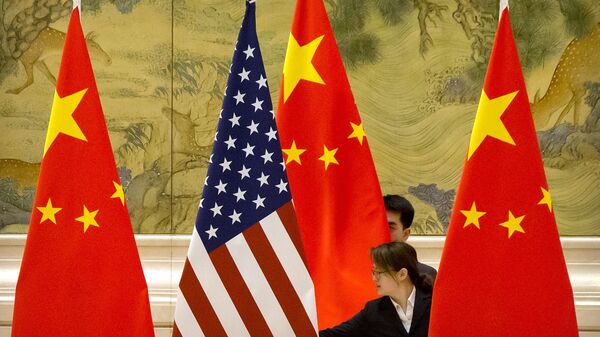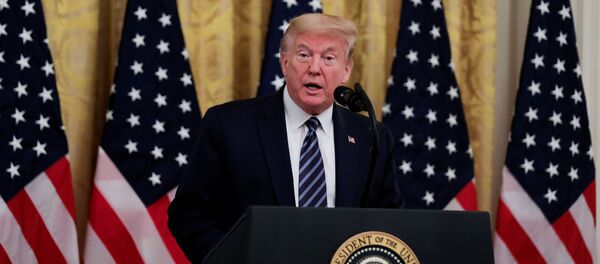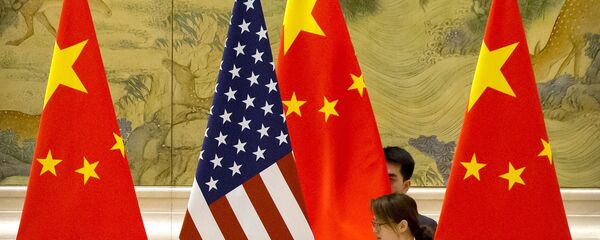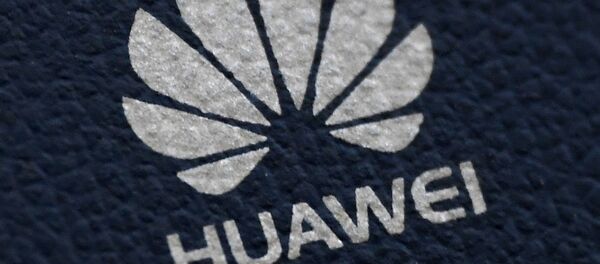China has been adorned with the tag of the world’s manufacturing hub — with exports worth US$2.499 trillion in 2019 – for the past few decades, but this status has been endangered following the trade war with the US and the outbreak of COVID-19.
While many US and Japanese companies have begun pulling out of China, developing countries in South Asia, like India, and Africa are looking at this as an opportunity to become the world’s next manufacturing centre.
With Chinese companies planning to set up manufacturing hubs in other countries like India and African nations, mostly US-friendly nations, to avoid restrictions, Professor of China Studies at Jawaharlal Nehru University Swaran Singh says this is what economic logic would dictate.
“Not only Chinese companies but their joint ventures would perhaps be the first to shift base to escape [the] impact of US restrictions and tariffs. Some of this is already happening and many more firms are in negotiations with neighbouring nations, including India. Some of these could also be viewed as US-friendly nations, but firms shifting there from China would be guided by economic logic with little political considerations”, Singh says.
US President Donald Trump on Thursday warned of tariffs on China as punishment for the deadly outbreak. When asked if the US could consider cancelling its debt obligations to China, he said: “I could do it differently; I could do the same thing but even for more money, just by putting on tariffs”.
Whether these restrictions will follow the Chinese firms setting up shop in other countries to escape the impact, former finance adviser to the government of India Arvind Virmani says: “The USA would likely extend any restrictions to Chinese invested business in these countries”.
However, Singh believes that China still has an upper hand for being the “first to come out of [the] COVID-19 pandemic”, raising the bar for other destinations to be attractive for these firms shifting base out of China.
At the same time, Singh says: “President Trump has always been high on rhetoric but he is a deal maker and has shown enormous sense of doing business in all his relationships. So as long as he is able to explain things in terms of gains to the United States he will have little qualm about these firms making their choices of shifting”.
With this, India has the opportunity to attract manufacturers from sectors such as electronics and mobile phones – of which it already is the biggest market – followed by pharmaceuticals.
India’s Minister of Electronics and Information Technology (MeitY) Ravi Shankar Prasad has even urged states to work towards attracting investments for electronics manufacturing, with more and more manufacturers looking to shift base from China.
India’s recent incentives in this area — such as electronics manufacturing clusters, and schemes for the promotion of manufacturing electronic components and semiconductors, which have a project outlay of $6.6 billion (INR 50,000 crore) — could become an attraction for them.
Singh says reports are suggesting that 300 firms, out of about 1,000 (both global and Chinese), are contemplating shifting base out of China, being in communication with India as their potential destination.
“It would depend on India making attractive offers compared to other competitors. India can sure be an attractive destination for online and back-office operations as also for cheap labour provided India can assure friendly regulations and infrastructure”, Singh says.
In the past, India has been a hotspot for phone manufacturing companies, especially Chinese brands. With around 270 factories making handsets and components, India witnessed a doubling of phone exports, as figures for FY19-20 stood at 360,000,000 units, according to the Ministry of Commerce
Local manufacturing of Apple, Xiaomi, Oppo, Vivo, OnePlus, Realme, and Samsung has expanded local production, which indicates India’s dependence on China to meet its electronics requirement.
The government in India is also trying to restart old active pharmaceutical ingredient (API) units to make the country an alternative hub for bulk drugs as opposed to China, which controls 55% of API space in the world.
Former adviser to the Indian government Arvind Virmani says the effort to diversify supply chains out of China provides a once-in-a-generation opportunity for India.
“To make full use of this opportunity, India has to accelerate its economic reforms and have a more focused approach to attracting the key nodal companies in these supply chains”, he suggests.
One such example was the MG Motor unit acquired by China’s SAIC Motor Corporation Limited, entering the Indian manufacturing sector in 2019. Similarly, Great Wall Motors Company Limited is in talks with General Motors to acquire the Detroit manufacturing unit in India’s Maharashtra state.
India recently imposed restrictions on foreign direct investments on countries sharing borders with it, indicating a protectionist tendency, but only against the acquisition of domestic companies.
With Chinese and global manufacturers moving places, questions are being raised on government action in the state-controlled economy.
Singh says: “[The] US tariff war has sure made an economic impact on several manufacturing and service sectors that contribute to China's enormous exports. But China is also aware of these challenges and has been trying to rectify and create alternative arrangements”.
He goes on: “President Trump's two years of tariff wars followed by his anti-China rhetoric on [the] coronavirus pandemic originating in China has only accelerated these exogenous impulses, but [it] will not be [the] end of China leading world production of goods and services, though, in [the] face of COVID-19 we will also see a visible fall in demand for these products impacting China's economic situation. But China is still likely to stay on top of the heap doing better than most other nations”.
In the last five years, there have been 13 large Chinese investment deals in Africa and nine in South Asia, as per the American Enterprise Institute’s China Global Investment Tracker.









